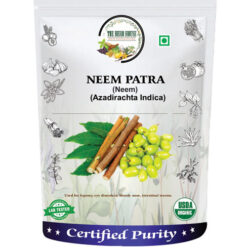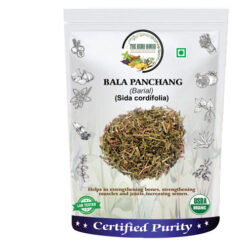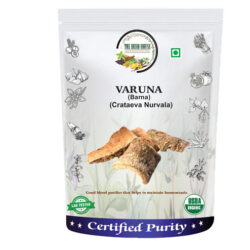Description
Agnimantha, a medicinal plant, grows either as a large shrub or a small tree. It sometimes grows up to 10 meters tall. Its roots, bark and leaves are used for medicinal purposes. While ‘agni’ means fire, ‘mantha’ refers to churning. In ancient times, wood pieces of Agnimantha were rubbed against each other to create fire. It is also used one among the ten roots (Dashamoola) in Ayurvedic medicine. Agnimantha is referred to as headache tree in English.
Properties of Ginger: Antibacterial, Antiseptic, Laxative, Antiviral, Anti-inflammatory, Anti-fungal, Detoxicant, Anti-spasmodic, Synergistic, Anti-cancer
Medicinal Properties and Uses:In ayurvedic formulations, Agnimantha is used as an anti-inflammatory as well as to balance vata and kapha doshas. It is also used as cold reliever.The hypoglycaemic property of the extracts of this plant is helpful to control diabetes and hence is very useful for patients suffering from diabetes. Its anthelmintic property helps prevent worm infestation. It is highly useful in case of anaemia as it serves as a good medicine for iron deficiencies. The plant extracts are also effective in terms of hypertension and related complications.As a powerful anti-inflammatory, Agnimantha is useful in case of swelling and inflammation. Speaking of the gastrointestinal disorders and illnesses, the plant extract is known to boost low digestion strength, cure bloating, and in case of altered digestion & metabolism. It is also known to help relieve constipation and reduce the severity of haemorrhoids. Agnimantha is useful in treating cold, cough as well as asthma.The extracts of the plant is used to treat diabetes. Urinary tract infections are also treated using Agnimantha extracts. Besides, its decoction is used to enhance strength & immunity following fever treatment. It is best adviced to use it to boost your immune system soon after viral infections. The decoction also helps to regain the strength after suffering from viral fever.







Reviews
There are no reviews yet.